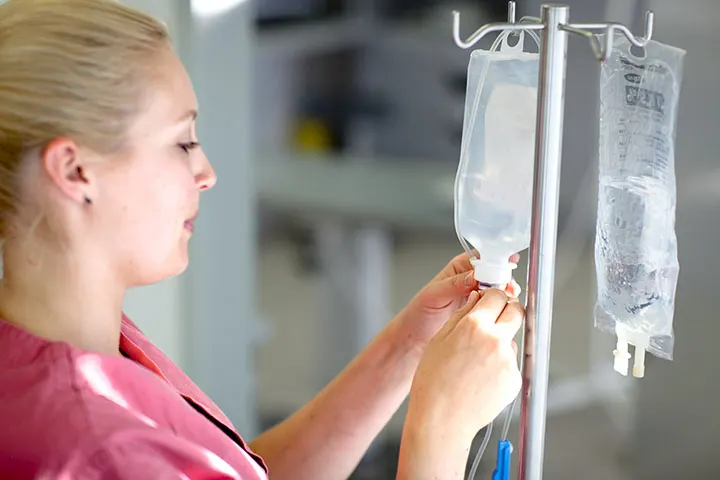Answering Common Questions About the Purpose of Infusion Pumps

By now, you may be aware that there are two ways to regulate the amount and rate of fluids given through an IV: manually and using an electric pump. If your medical facility takes advantage of the efficiency and convenience of infusion pumps for patient treatment, it's essential to understand the specific purpose of infusion pumps so you can make the best decisions for your facility and patient needs.
What are some recent safety innovations of modern infusion pumps?
It's no secret that there are countless different types of IV pumps, and many
newer models are designed to include a variety of additional safety features. These models are often used to
administer everything from critical fluids to high-risk medications and more. Knowing this, it should be clear that
a pump failure of this kind can be disastrous for patient safety. These safety features are designed to activate
upon equipment failure in numerous ways:
"Some pumps are designed to alert users when air or another blockage is detected in the tubing that delivers fluid
to the patient. Some newer infusion pumps, often called smart pumps, are designed to alert the user when there is a
risk of an adverse drug interaction, or when the user sets the pump’s parameters outside of specified safety
limits," says the U.S. Food and Drug Administration.
An investment in these advanced pumps is an investment in overall patient safety.
Where are infusion pumps used?
Infusion pumps aren't just used in traditional hospital settings -- they're used across many medical industry sectors. Nursing homes, for example, often take advantage of the smart technology. Some patients can also use the devices in their own homes.
Can a patient operate their own infusion pump?
No -- a trained medical professional is required to operate the system to ensure proper fluid type and flow rate.
Are all infusion pumps stationary?
No -- infusion pumps can also be ambulatory or portable, depending on patient needs. Some are even wearable. Ultimately, infusion systems are undoubtedly continuing to grow in demand as the need for reliable IV systems increases. For more information about the purpose of infusion pumps, contact Med One Group.
